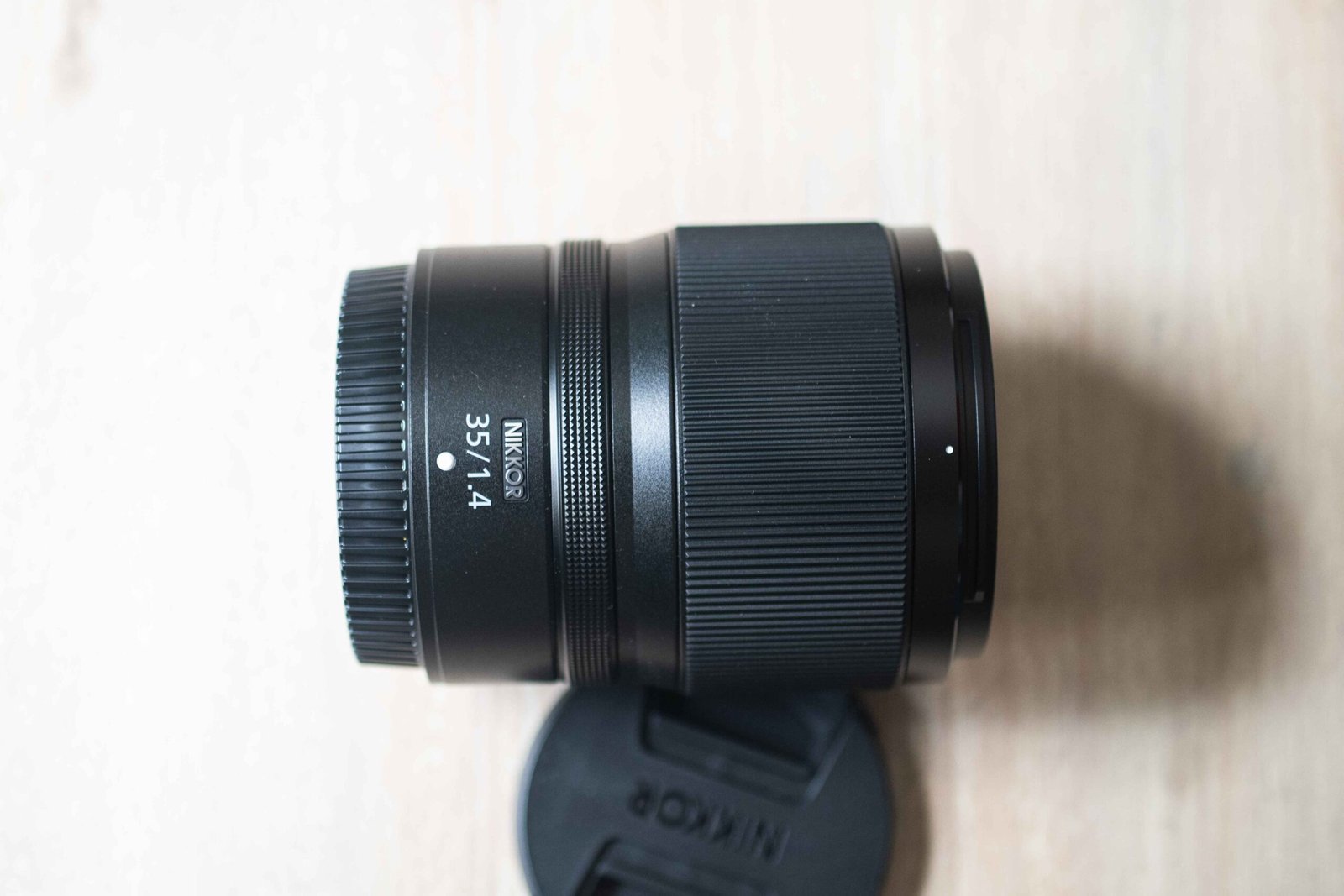
When Nikon announced the Nikon Z 35mm 1.4 for their mirrorless bodies, I was pleasantly surprised.
First, everything thought that the Nikon Z 35mm 1.2 would be the brighter lens of the 35mm series, after the excellent Nikon Z 35mm 1.8 S, known for its excellent sharpness wide open. Suddenly, we had a relatively affordable Nikon 35mm that was f1.4, even brighter than the S series lens!
Naturally, I wanted to get one to replace my old Sigma 35mm f/1.4 Art for the F mount. I have been using that with the FTZ adaptor on my Nikon ZII. There will be a comparison article but it has been a heavy, unwieldy combination.
Having bought one at the recently launch sale at SG$847 (with a free Nikon Creator Branded Hydro Flask as bonus), I was able to get my hands on one copy to try.
Here are my thoughts.
Ergonomics, the Nikon 35mm 1.4 Z in hand
Weight and size
The Z 35mm 1.4 weighs 415g. To me, this makes for a lightweight, well balanced combination with my Nikon Z7II, as shown in the top image. Most Z photographers will find this lens compact and easy to pack at 86.5mm in length (slightly bigger than my clenched fist). This lens balances quite well on the Z mount APSC cameras.

Focusing and control ring
The lens has 2 control rings. The larger one near the front is for focus, while the rear knurled ring is a control ring that you can customise to adjust a few settings.
The three settings, aperture, exposure compensation and ISO are all things that I would want fast control over during a paid shoot. Personally, I set it to either aperture or ISO when I’m shooting manual, and exposure when I’m shooting A or S mode. The control ring is something I enjoy using especially compared to my Nikon Z 50mm f/1.8 S.

The Nikon Z 35mm 1.4 is similar to other Z mount lenses in the use of a silent, stepping motor. Autofocus is smooth during photo and video modes. You can set the AF speed in camera. I find it is fast enough for my paid event work, when I was testing the speed in focusing between near and far subjects.

Nikon 35mm 1.4 Z Filter Size
The front element is small. The lens takes a smallish 62mm filter. While I would have preferred the 67mm since I already have quite a few, if you’re buying new, the 62mm filters are not expensive.
Image Quality from the Nikon 35mm 1.4 Z



Vignetting on the 35mm 1.4Z
In this shot, I was able to clearly see the vignetting in the image at f1.4. Some people might find this to be useful, especially when shooting environmental portraits.
For landscape shooters, this is not a huge problem and lightroom solves it with a single click. To me vignetting is usually not an issue since it is easily fixed in software.



Here is a side by side shot at 100%. When shooting wide open at f1.4 vs at f4, you can see a large difference in overall contrast and sharpness. Nikon wasn’t kidding with their marketing materials. I noted that Nikon stated that the lens was sharp when stopped down, with no mention about shooting wide open. To my eyes, even the 1.4 is fine.
In a paid shoot, I would have no issues shooting the lens at any aperture. You will only see the difference in a side by side comparison wide open and stopped down to f4 or f5.6.


Is Chromatic Abberation Present?
Chromatic aberration to me usually is not a huge issue since it can be fixed in lightroom. Wide open, you will see purple fringing on the white edges of the rooftop on the right.
When stopped down the f4, the fringing is no longer visible. If the 35mm 1.8S is the same as the 50mm, there is no fringing even wide open.
But again, for my purposes, this is not a major issue since most of my paid work is indoors where the ability to shoot at 1.4 in low light is far more important than the fringing that my client may not notice.


From the two sample shots above, the bokeh is smooth enough for my use. Being able to shoot wide open at 1.4 means that in most of my environmental portrait shoots, I should be able to blur out the background.
Conclusion, do you get the Nikon Z 35mm 1.4?
I bought this lens as a replacement for my Sigma 35mm 1.4 Art. Just based on the size and weight savings alone, as long as the Nikon Z 35mm 1.4 wasn’t a potato in terms of performance, I would have considered it a good buy. So far, in my usage, there has been no issues. I will continue to update this article as I use it in my shoots.
It’s very rare that I buy a lens new, but Nikon has done very well with this surprising lens (in terms of price and performance). I think those who need a fast 35mm in the native Z mount will find this an excellent piece of kit to own.
If you’re a fan of 50mm lenses, and wondering how the Z 50mm 1.8S performs, check out this article.
If you’re a fan of the 85mm for portraits, you can read about my comparison of the Z and F mount 85mm 1.8 lenses.

Leave a Reply